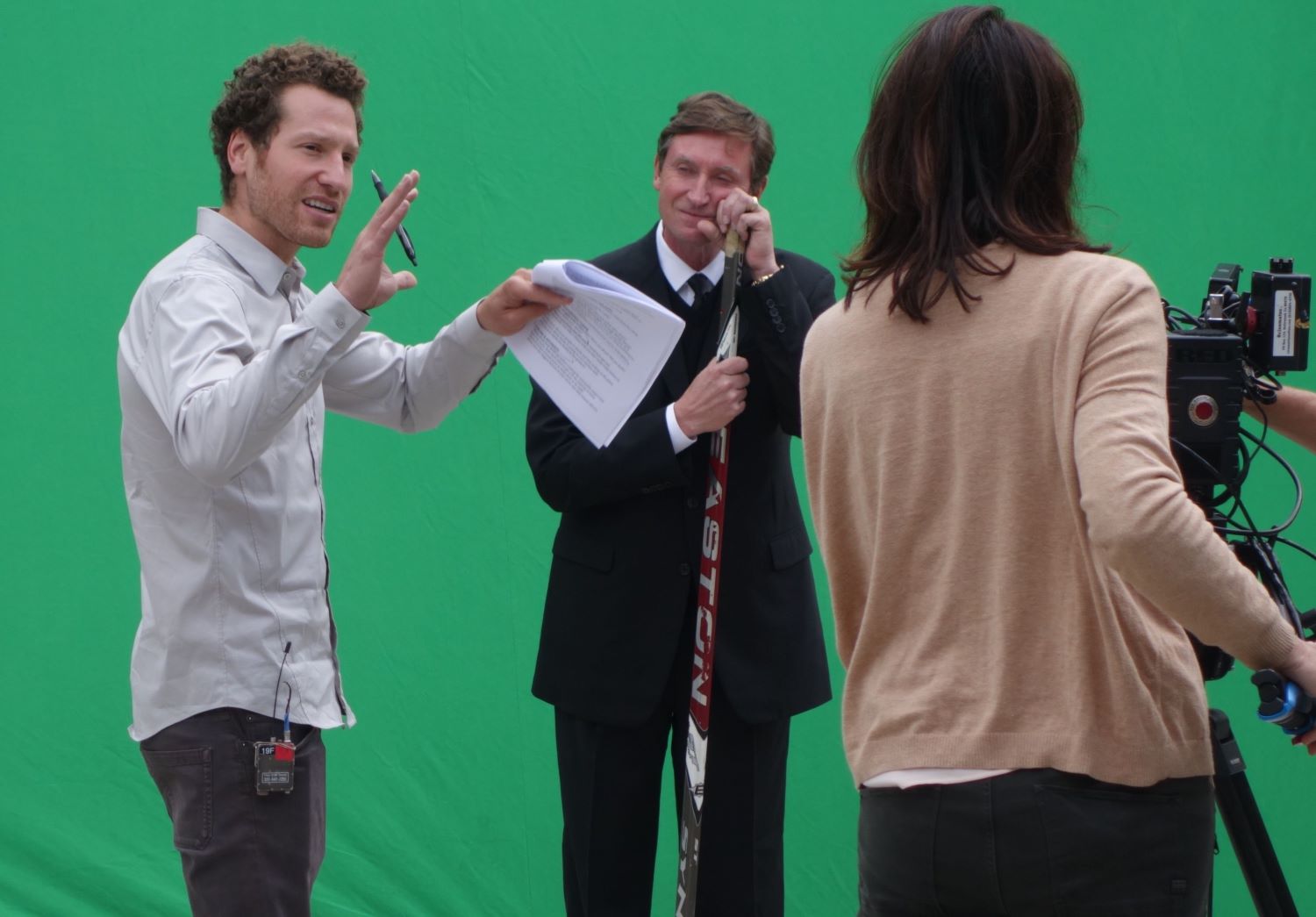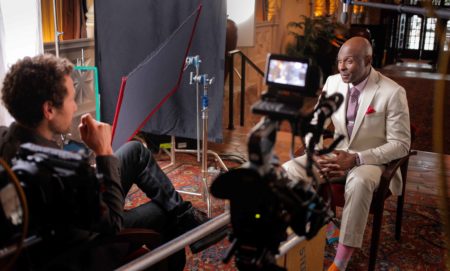In a society driven by competition with value placed on perfection, what puts someone at the top of the game? Is it genetics? Psychological composition? Nature or nurture? How do these relate to getting the most out of oneself mentally and physically? What quality do those we deem extraordinary—geniuses—possess that others perhaps lack?
What sounds like a symposium on philosophies of human potential has been turned into a fascinating new documentary by filmmaker Gabe Polsky (The Motel Life, Red Army), who went looking for nothing less than the origins of genius—and formed, surprisingly, some very compelling conclusions.
In his new picture In Search of Greatness, Polsky assembles a collection of conversations with legendary sports figures—including Jerry Rice, Wayne Gretzky and Pelé—searching for the core drivers of what has made them perhaps the best of all time. Through these interviews and exhaustive, well-assembled archival footage, Polsky delivers a compelling proposition about creativity in those who disrupt their worlds, and ours—in sports, entertainment or wherever—and how such is integral to their genius. But where does creativity originate, and can it be cultivated?
I recently caught up with Gabe Polsky to chat about his involving new picture and the link between creativity and self-actualization, perhaps the essence of human happiness.
I realized midway into In Search of Greatness that it wasn’t necessarily about professional sports figures; in some regards, it made me evaluate how I grew up.
That’s exactly right. I’m not a sports nut. There’s nothing wrong with that but that is not what I’m about. I started looking at the stats and score sheets and who is doing what. I was more interested in is the creative aspects of it. I played competitive sports in Division 1 hockey, so this idea of how to get the most out of your body and mind creatively and physically- you must react fast. You can’t think. You must be creative and improvise and learn how to work with a team. And that was what fascinated me. These things apply way beyond sports.
Society is obsessed with success and greatness, but often people don’t understand what those are. (Similarly) in the entertainment industry, I believe it has to do with creativity—that is the essence of greatness; people changing how we think by doing something new. We enjoy those magical moments that are unexpected—in sports, you might think about Muhammad Ali, Wayne Gretzky and all these guys. But beyond that these are aspects of greatness in any field—everything from youth development to genetics, nature and nurture, parents, our psychological composition to collective creativity and collaboration; all these things. It’s about life, and if you want to know more about those fundamentals, this film gets into it.
The movie is in some ways a social critique of some aspects of what we might call helicopter parenting. It ruminates on the benefits of early, unstructured free time and that it contributes to life success. It’s subtly critical of too rigid parental “pushing,” the kind that results in a kid on a hamster wheel for years until they eventually get burned out.
Yes, I just believe that’s incredibly unhealthy and in the long run it will not lead to greatness. You may get great results, but you will also get unhappiness and a sort of unenriched person. When you are doing only one thing, that specialization is where you become one-dimensional and that is not good for a person and his or her health but also it is, I believe, going to take away from their greatness. In the movie it is very clear that you can’t force greatness and it must develop naturally, and that people need to experiment and know who they are physically and mentally, their strengths and weaknesses—and it must be joyful.
The movie suggests that human happiness correlates to the pursuit of passion. Only a small amount of people are likely self-actualized in this way.
You said it right there. We may call it obsession or being motivated, but those are just labels. It could be labeled as pure joy, or what brings that to a person. You might say it is workaholism and it can lead to imbalances, but if they love what they are doing they do not have to be pushed. It’s simple. If you love what you do, then you are happy. There is no more to it than that.
Let’s discuss the interviews. I’m curious how you got Rice and Gretzky and the others to participate. Did you explicitly tell them what you were planning to talk about?
I tried to really get deep, but the funny part is when I interviewed them I didn’t think they knew why I was there. I had done this painstaking, persistent work pitching their management, and I don’t think the managers really cared either. They liked something I was saying. When I interviewed the guys they didn’t either, but they seemed to like the questions I was asking them.
These are things they would not ordinarily be asked. They must have responded to that.
The bottom line was, “What is new and interesting to me that I would want to know? That I haven’t heard before?” I knew I’d never interview them again and if I didn’t make a good film, forget it. People ask me what surprised me in making the film. Everything did.
The movie made me consider the idea of greatness, or lack thereof, in the movie business today.
Exactly. So if you think about this, you’ll never see a tremendous filmmaker that didn’t take risks and that compromised for a studio.
The film’s structure and approach get at the intersection of creativity, psychology, genetics—it asks a bit of viewer to sit up and sift through these dimensions; to evaluate and conclude.
Yes, on the surface it could seem like a simple film. But to make a film with this structure out of nothing but ideas—it’s not a traditional narrative and I had limited time with these guys and it by nature is talking heads—was really challenging. The trick is letting the audience connect the dots and not explaining too much but holding their hands, so they are not totally lost.
When and why did you decide to jump into the movie business—at Yale, or later?
I think it was the end of my senior year. I was trying to figure out what I was going to do. I didn’t have a plan going into college or even toward the end. I wanted to take hockey to the furthest level and I thought I had the ability to play professionally, but for various reasons it didn’t work. At that point I realized I was not going to the NHL. I had lost the love of the game, and once that happens you need to move on. I started thinking about what I could be good and passionate at for a long time and marry that with passion. What were my skills and abilities? It’s a tough world and if you’re not really enjoying what you are doing it’s going to make it even harder. How do you get out of bed if you don’t like what you are doing?
What’s the best part about your job?
The shooting is the most fun because it is spontaneous and happening in front of you; there is an element of surprise in what is going to happen.
Do you feel like you answered the question of what greatness is?
I do! By definition, greatness is something you can’t copy, and you know it when you see it.




